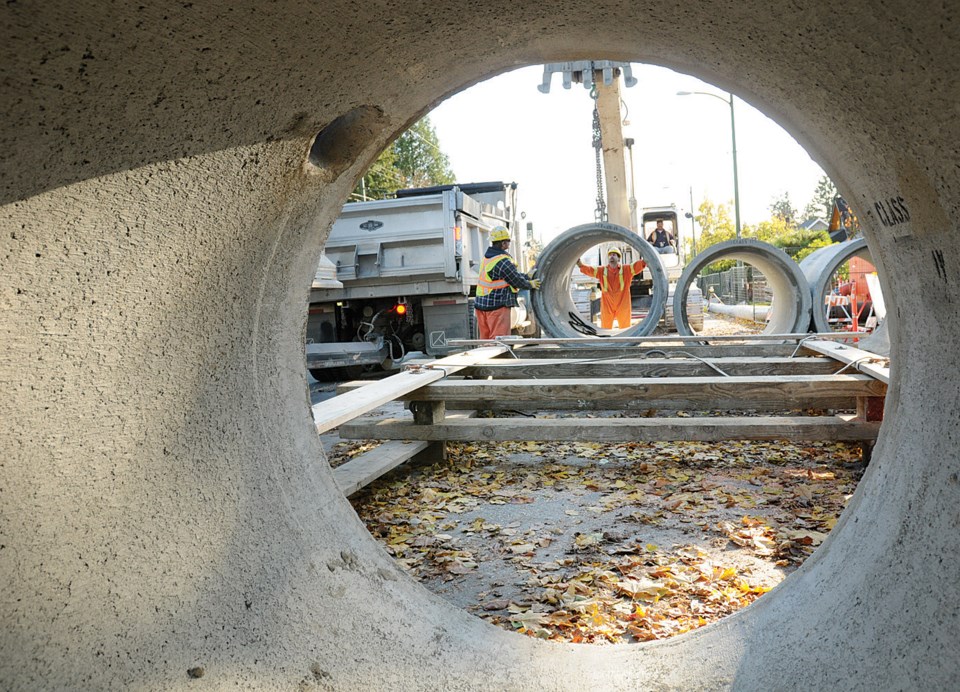The total overtime accrued by all City of Vancouver employees in 2018 was more than $15 million, according to documents obtained by the Courier under the Freedom of Information and Protection of Privacy Act.
That was one of the findings of a Glacier Media project that requested information from 24 municipalities in B.C. on five topics, which included marijuana, the mayor’s calendar, the city manager’s travel expenses, overtime and a record of other requests under the FOI Act.
Overall results can be found here for the project.
In Vancouver, the city’s freedom of information office acknowledged each of the Courier’s requests for information on the same day they were emailed, which was July 15.
The quickest response came the day after the requests were made, with the office noting Mayor Kennedy Stewart proactively discloses his calendar on the City of Vancouver’s website. (Typically, it’s posted the month after Stewart has completed his meetings. This is done for security reasons).
The request for city manager Sadhu Johnston’s travel expenses for all of 2018 returned a reply July 22 that said Johnston “did not travel on city business during time period specified.” The city’s Statement of Financial Information for 2018 shows Johnston earned $350,003 that year and spent $824.
The total overtime accrued by all City of Vancouver employees last year — $15,228,907.86 — represents both paid and banked time. It does not include employees of the Vancouver Police Department. That would require a separate request.
As of Aug. 31, the City of Vancouver employed 9,129 people. That includes 4,943 who work directly for the city, 2,537 for the parks board, 814 for Vancouver Public Library and 835 for the fire department and emergency management office. Full time, part time, temporary, casual and auxiliary employees are represented in the totals.
The VPD has more than 1,300 officers and several hundred support staff.
Barbara J. Van Fraassen, the city’s director of access to information and privacy, said in a July 26 response to the Courier that her office was unable to proceed with the request for correspondence between the city and the provincial government concerning the legalization of cannabis.
The federal Cannabis Act came into effect Oct. 17, 2018 in Canada, which put in a place a new, strict framework for controlling the sale, possession, production and distribution of marijuana. Prior to legalization, the City of Vancouver had embarked on a business licensing scheme for illegal marijuana dispensaries.
Van Fraassen wanted the Courier to specify type of correspondence within the City of Vancouver regarding legalization of cannabis, saying it would “assist our office with contacting specific departments.” The Courier chose to abandon the request based on the fact other municipalities chosen in Glacier’s project had responded to the initial request.
The request for a record of freedom of information requests to the city from Jan. 1, 2019 to July 15, 2019, including the wording and processing time to complete the request, returned a lengthy explanation July 19 from Van Fraassen on why the city couldn’t produce all the information.
She pointed out, however, that all FOI requests “that can be made public” are published monthly on the city’s website — that’s after a 30-day lag time between the time of disclosure to the applicant and making the package available to the public.
“Regarding your request for ‘processing time’ to complete an FOI request, the FOI office confirms the City of Vancouver has met all [100 per cent] statutory timelines as required under FIPPA from Jan. 1, 2019 to July 15, 2019,” Van Fraassen said.
“However, because the city’s FOI office does not have a case management system [to date] to provide accurate and/or itemized metrics for individual FOI request ‘processing times,’ we are unable to produce the requested information specified as ‘processing time’ using our normal computer hardware and software and technical expertise. We do calculate and publish our ‘average’ processing time for all requests each year in our annual report.”
Added Van Fraassen: “Additionally, there are different processing circumstances that impact processing time and we note that even when we acquire a case management system and are better able to generate individual processing metrics, processing times must be referenced to the specifics of each individual request.”
Van Fraassen’s email goes on to explain when time extensions for requests may or must be taken if factors such as clarification of a request, compilation of a broad record search, application of a fee or required notification of a third party are relevant.
Notifying other public bodies other than the city would also be a factor in a time extension. She provided the example of a request that includes records involving Metro Vancouver or TransLink. Those agencies must also be notified and consulted about the information.
“In general, we allow an extra 20 business days to complete most other public body consultations, but a public body can ask for additional review time if they are being asked to review a large number of records,” said Van Fraassen, but noted requests that contain personal, third party or “city confidential information” are not made publicly available.
As for the total number of open and in process FOI requests, Fraassen said they fluctuate daily, “as does resource availability and this can also impact processing times.” FOI releases on the City of Vancouver’s website can be found here.
Note: This story has been updated since first posted to include the number of employees working for the City of Vancouver.
@Howellings



